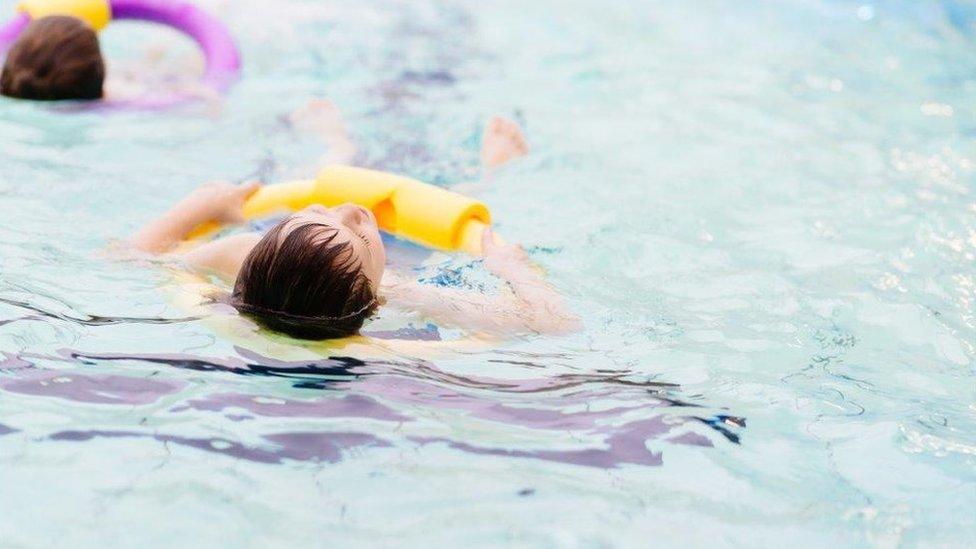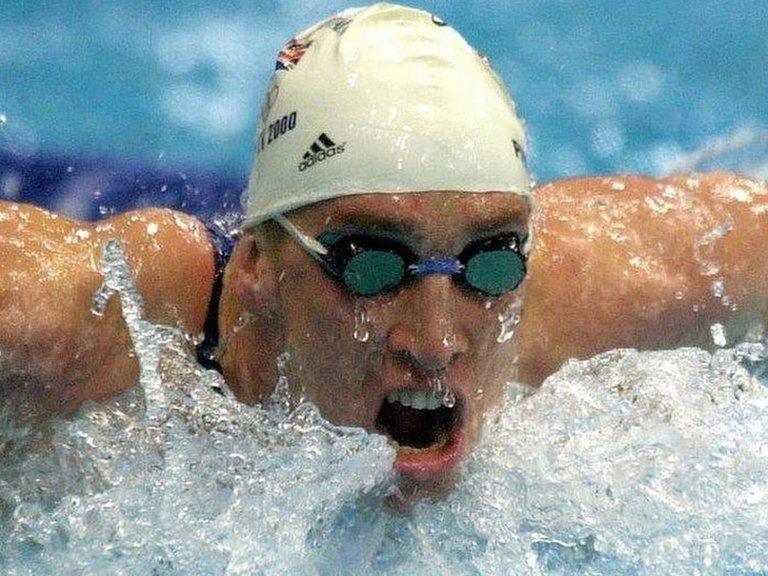Action urged to teach children to swim
- Published
- comments

Too many 11-year-olds have weak swimming and water safety skills, says report
Almost a third of 11-year-olds in England leave primary school unable to swim, a representative sample of 1,000 parents of Year 6 pupils suggests.
And two-thirds of the parents, surveyed for Swim England, feared their child could not save themselves in water.
"Hundreds of people drown every year," warned Steve Parry, a former Olympic swimmer and chairman of a report urging an overhaul of school swimming.
Ministers agreed "more must be done" to improve school swimming.
According to the survey, published alongside the report, an overwhelming 94% of parents believe it is important for their child to be able to swim competently by the end of primary school.
"Water safety is the only part of the national curriculum that will save children's lives, it can't be treated as an optional extra," said Mr Parry.
The report, compiled after eight months of research, points out that the National Curriculum requires all children to be able to swim 82ft (25m) by the age of 11 - but says that too many schools miss the target.
It draws on figures compiled last year by Swim England, formerly the Amateur Swimming Association, which show that only 36% of primary schools reach all the national curriculum swimming and water safety standards.
And worryingly, the same set of figures show that more than a quarter of schools are either not providing swimming lessons or are not monitoring children's progress.

Steve Parry in the men's 200m butterfly final at the Sydney Olympics in 2000
In his foreword to the report, Mr Parry called the figures "unacceptable".
The independent report, by a group of sporting and educational bodies called Swim Group, was commissioned by the government.
Its recommendations for swimming and water safety teaching include:
a new national Top-Up Swimming programme to ensure all children reach statutory standards
a new swimming achievement award for pupils
better swimming resources for schools
swimming to be included in the next national curriculum review
better training for staff who teach swimming
The authors say that schools tend to "prioritise subjects for which they are graded" and says that if school inspections paid greater attention to swimming this could be a "silver bullet" for standards.
The report also notes that almost three-quarters of primary schools travel to local authority pools for lessons and transport can be time-consuming and expensive.
The authors say greater use of demountable and mobile pools should be explored.
"Swimming is a vital life skill," said Children's Minister Robert Goodwill.
He said the government would work closely with the authors to review the recommendations.
Sports Minister Tracey Crouch added: "We want to see more schools stepping up and ensuring that the number of children who leave school able to swim rises."
And Paul Whiteman, general secretary designate of the National Association of Head Teachers, agreed swimming was a crucial life skill but added that schools needed more resources "to hire a pool, pay for qualified instructors and to arrange transport".
He added: "At a time when budgets are being pushed beyond breaking point, many schools find it difficult to deliver anything outside of the academic core.
"The government must invest, or risk seeing a further decline in swimming amongst primary age children."